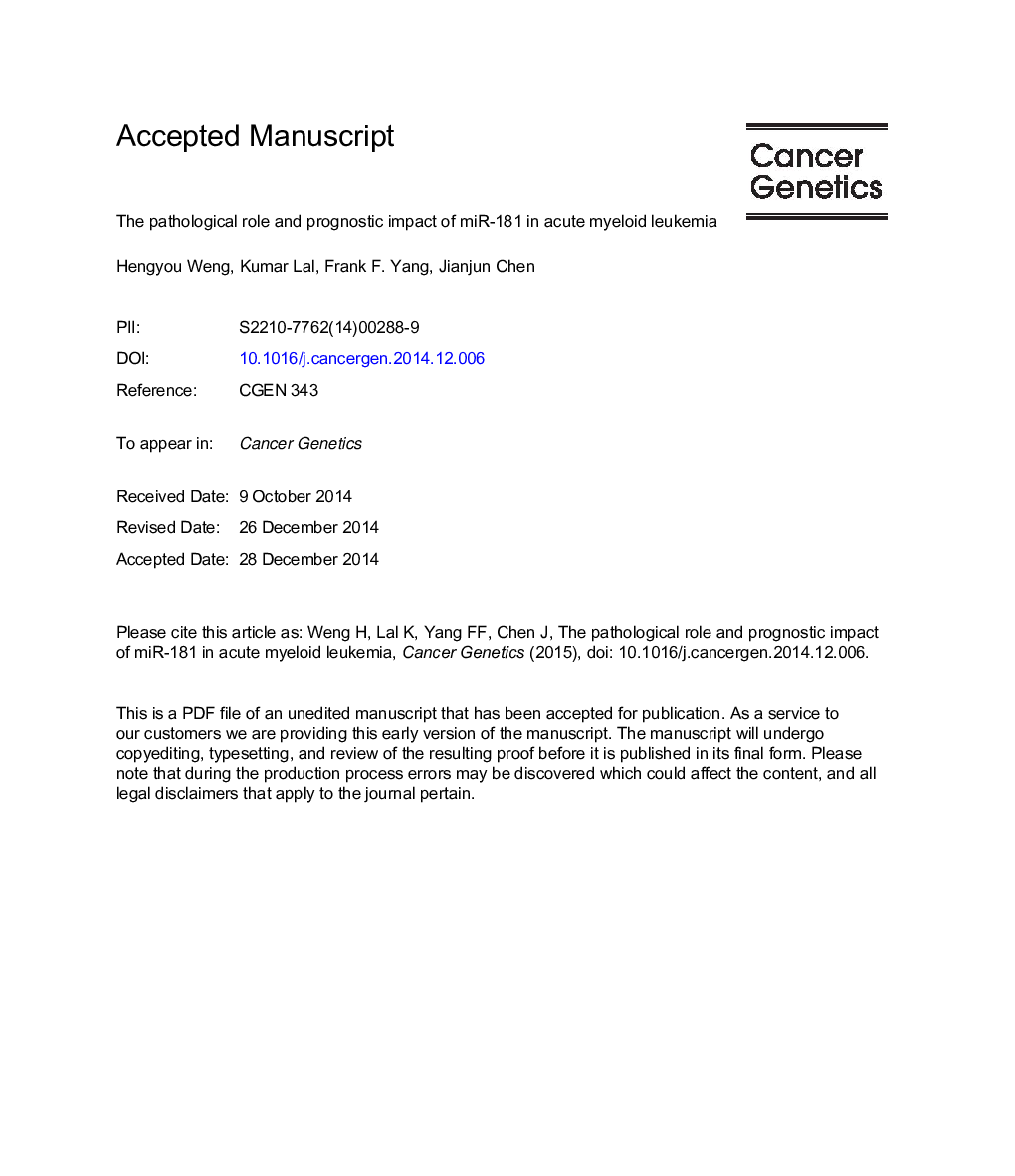| Article ID | Journal | Published Year | Pages | File Type |
|---|---|---|---|---|
| 10897625 | Cancer Genetics | 2015 | 15 Pages |
Abstract
In addition to genetic abnormalities, such as chromosomal translocations and somatic mutations that have been widely acknowledged in the leukemogenesis of acute myeloid leukemia (AML), epigenetic modifications also play a vital role in this process. MicroRNA (miRNA) regulation is emerging as a new layer of epigenetic regulation besides DNA methylation and histone modifications. Among the miRNAs first identified to be specifically expressed in hematopoietic cells, the miR-181 family has been implicated in regulating the differentiation of B cells, T cells, and natural killer cells during normal hematopoiesis, and has been linked tightly to the pathogenesis and prognosis of AML. Accumulating evidence indicates that miR-181 acts as a tumor suppressor in the pathogenesis of AML and exhibits a significant impact on the survival of patients with AML. Herein, we review the role of miR-181 as a diagnostic marker and prognostic predictor in AML, and discuss the potential use of miR-181 as a therapeutic target for AML.
Related Topics
Life Sciences
Biochemistry, Genetics and Molecular Biology
Cancer Research
Authors
Hengyou Weng, Kumar Lal, Frank F. Yang, Jianjun Chen,
